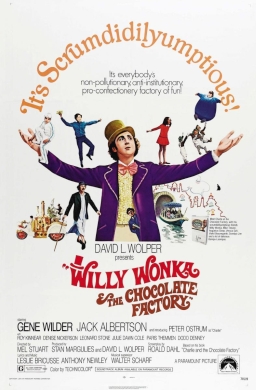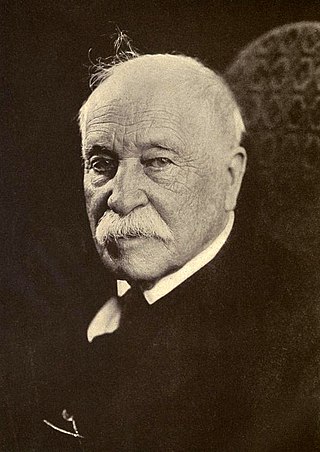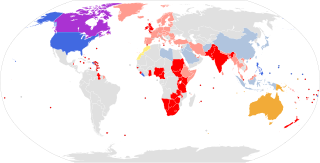
The term Yankee and its contracted form Yank have several interrelated meanings, all referring to people from the United States. Their various meanings depend on the context, and may refer to New Englanders, the Northeastern United States, the Northern United States, or to people from the US in general.
A sniglet is an often humorous word made up to describe something for which no dictionary word exists. Introduced in the 1980s TV comedy series Not Necessarily the News, sniglets were generated and published in significant numbers, along with submissions by fans, in several books by Rich Hall, beginning with his Sniglets, Sniglets for Kids, and More Sniglets in the mid-1980s.

Samuel Langhorne Clemens, known by the pen name Mark Twain, was an American writer, humorist, and essayist. He was praised as the "greatest humorist the United States has produced," with William Faulkner calling him "the father of American literature." Twain's novels include The Adventures of Tom Sawyer (1876) and its sequel, Adventures of Huckleberry Finn (1884), with the latter often called the "Great American Novel." He also wrote A Connecticut Yankee in King Arthur's Court (1889) and Pudd'nhead Wilson (1894) and cowrote The Gilded Age: A Tale of Today (1873) with Charles Dudley Warner. Ernest Hemingway claimed that "All modern American literature comes from one book by Mark Twain called Huckleberry Finn."

Willy Wonka & the Chocolate Factory is a 1971 American musical fantasy film directed by Mel Stuart from a screenplay by Roald Dahl, based on his 1964 novel Charlie and the Chocolate Factory. It stars Gene Wilder as chocolatier Willy Wonka. The film tells the story of a poor child named Charlie Bucket who, upon finding a Golden Ticket in a chocolate bar, wins the chance to visit Willy Wonka's chocolate factory along with four other children from around the world.
This article contains information about the literary events and publications of 1894.

William Dean Howells was an American realist novelist, literary critic, and playwright, nicknamed "The Dean of American Letters". He was particularly known for his tenure as editor of The Atlantic Monthly, as well as for the novels The Rise of Silas Lapham and A Traveler from Altruria, and the Christmas story "Christmas Every Day," which was adapted into a 1996 film of the same name.
This is a list of British words not widely used in the United States. In Commonwealth of Nations, Malaysia, Singapore, Hong Kong, Ireland, Canada, New Zealand, India, South Africa, and Australia, some of the British terms listed are used, although another usage is often preferred.
This is a list of American words not widely used in the United Kingdom. In Canada and Australia, some of the American terms listed are widespread; however, in some cases, another usage is preferred.

A lunch box is a hand-held container used to transport food, usually to work or to school. It is commonly made of metal or plastic, is reasonably airtight and often has a handle for carrying.

Go-go dancers are dancers who are employed to entertain crowds at nightclubs or other venues where music is played. Go-go dancing originated in the early 1960s at the French bar Whisky a Gogo, located in the town of Juan-les-Pins. The bar's name was taken from the French title of the Scottish comedy film Whisky Galore! The French bar then licensed its name to the West Hollywood rock club Whisky a Go Go, which opened in January 1964 and chose the name to reflect the already popular craze of go-go dancing. Many 1960s-era nightclub dancers wore short, fringed skirts and high boots which eventually came to be called go-go boots. Nightclub promoters in the mid‑1960s then conceived the idea of hiring women dressed in these outfits to entertain patrons.

Elizabeth Blackwell was an Anglo-American physician, notable as the first woman to earn a medical degree in the United States, and the first woman on the Medical Register of the General Medical Council for the United Kingdom. Blackwell played an important role in both the United States and the United Kingdom as a social reformer, and was a pioneer in promoting education for women in medicine. Her contributions remain celebrated with the Elizabeth Blackwell Medal, awarded annually to a woman who has made a significant contribution to the promotion of women in medicine.

Despite the various English dialects spoken from country to country and within different regions of the same country, there are only slight regional variations in English orthography, the two most notable variations being British and American spelling. Many of the differences between American and British or Commonwealth English date back to a time before spelling standards were developed. For instance, some spellings seen as "American" today were once commonly used in Britain, and some spellings seen as "British" were once commonly used in the United States.

An orphan is a child whose parents have died, are unknown or have permanently abandoned them. It can also refer to a child who has lost only one parent, as the Hebrew translation, for example, is "fatherless".

Midget is a term for a person of unusually short stature that is considered by some to be pejorative due to its etymology. While not a medical term like dwarf, midget long described anyone, or indeed any animal, exhibiting proportionate dwarfism. The word has a history of association with the performance arts, as little people were often employed by acts in the circus, professional wrestling and vaudeville.

The thong is a garment generally used as either underwear or in some countries, as a swimsuit. It may also be worn for traditional ceremonies or competitions.

Slapping or smacking is striking a person with the open palm of the hand, in a movement known as a slap or smack. A backhand uses the back of the hand instead of the palm.

String is a long flexible structure made from fibers twisted together into a single strand, or from multiple such strands which are in turn twisted together. String is used to tie, bind, or hang other objects. It is also used as a material to make things, such as textiles, and in arts and crafts. String is a simple tool, and its use by humans is known to have been developed tens of thousands of years ago. In Mesoamerica, for example, string was invented some 20,000 to 30,000 years ago, and was made by twisting plant fibers together. String may also be a component in other tools, and in devices as diverse as weapons, musical instruments, and toys.












